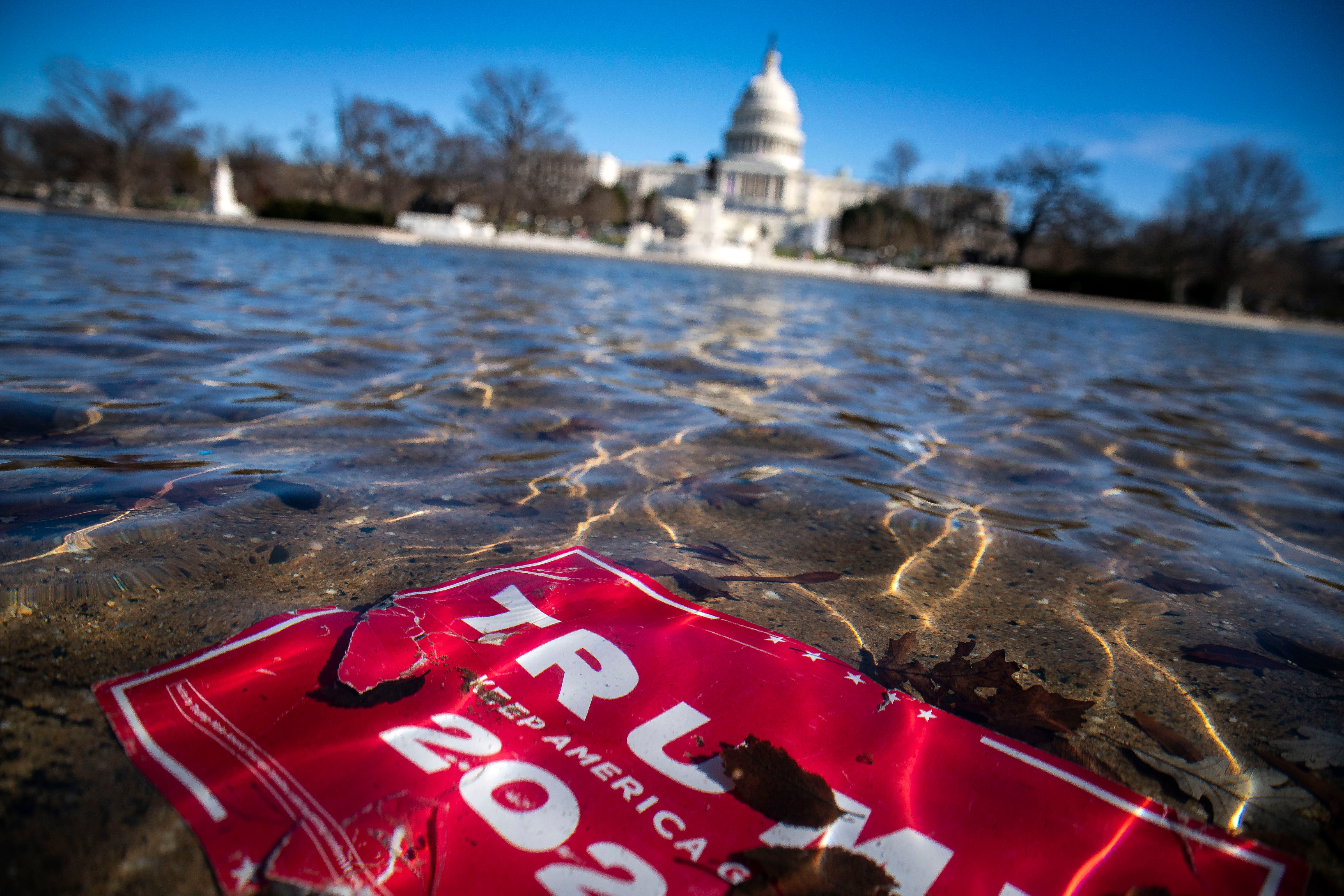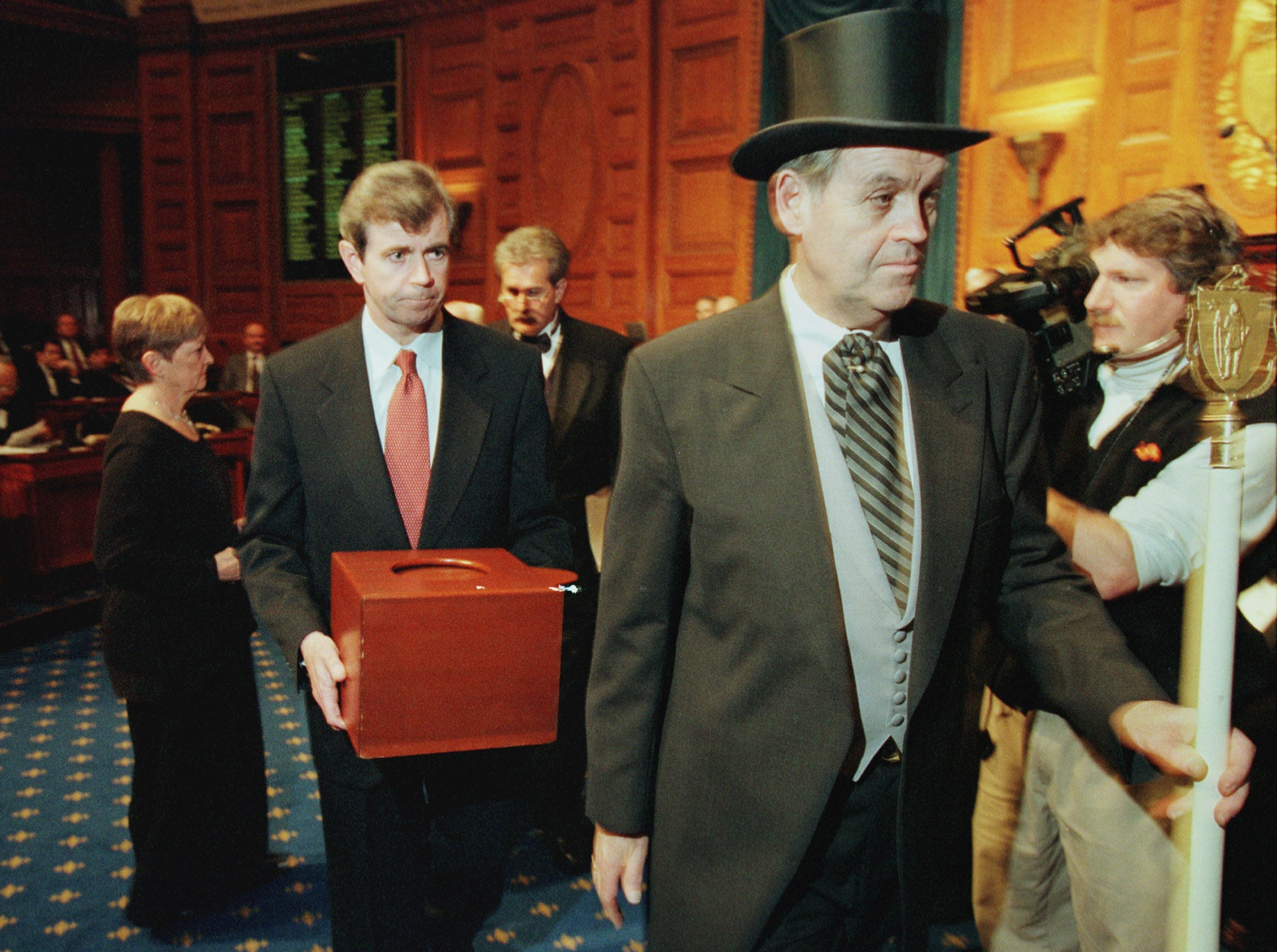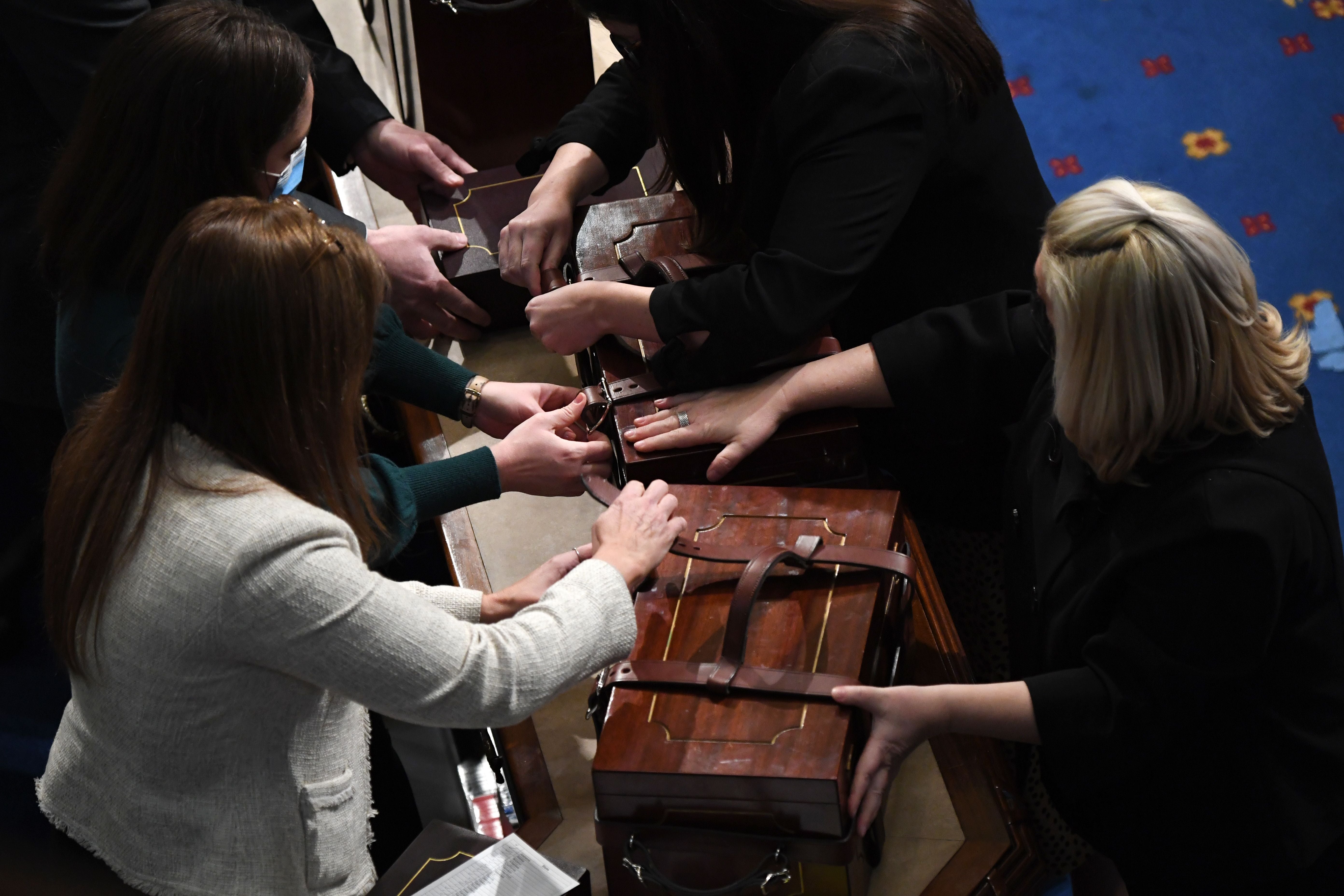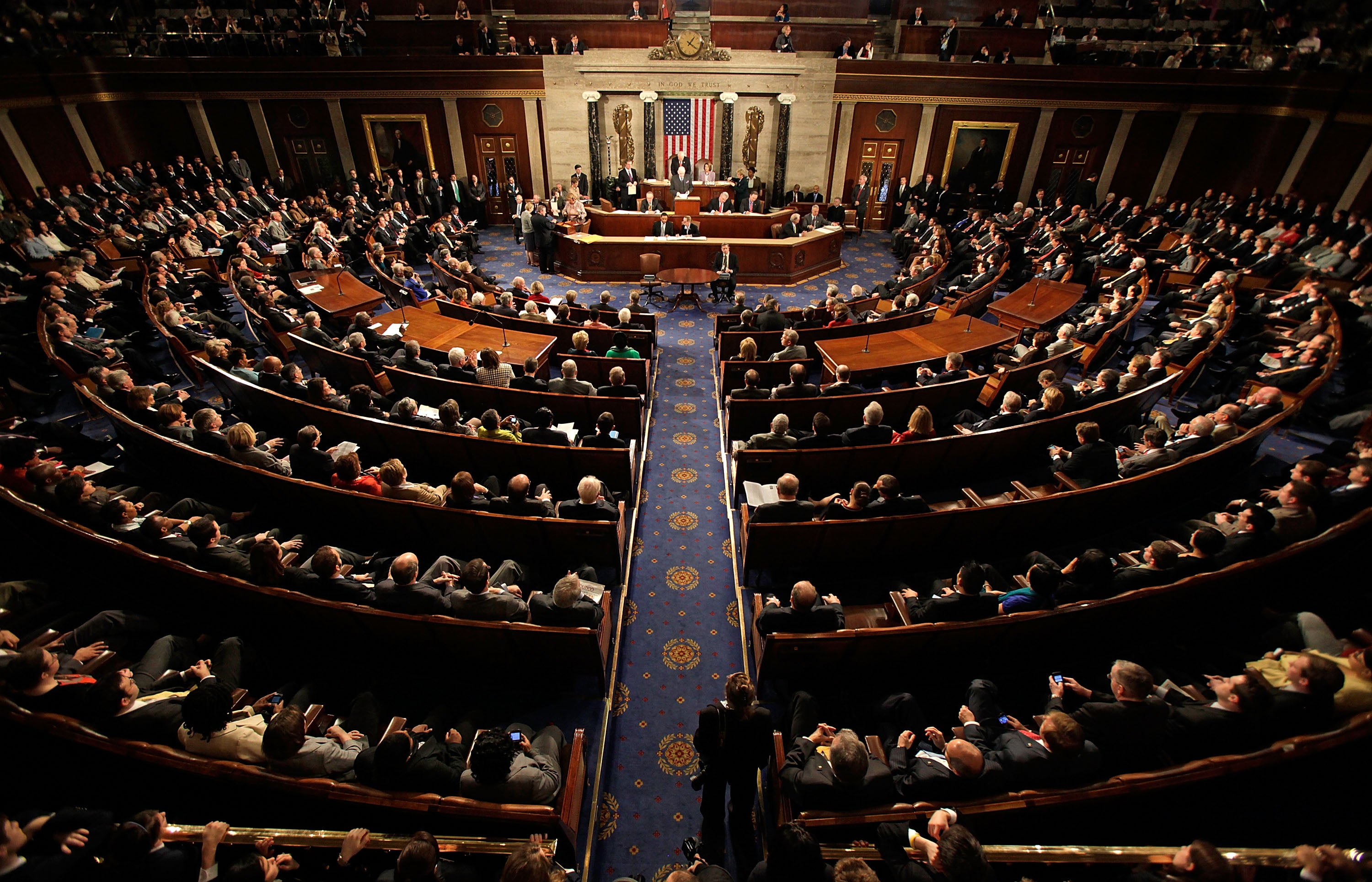The Electoral College is a ‘bad’ and ‘undemocratic’ system. So why does the US still use it?
In the most powerful democracy in the world, two of its last four leaders have been chosen by a minority of voters. The US’s Electoral College system is now functioning far from how its creators originally intended, Gustaf Kilander writes

Your support helps us to tell the story
From reproductive rights to climate change to Big Tech, The Independent is on the ground when the story is developing. Whether it's investigating the financials of Elon Musk's pro-Trump PAC or producing our latest documentary, 'The A Word', which shines a light on the American women fighting for reproductive rights, we know how important it is to parse out the facts from the messaging.
At such a critical moment in US history, we need reporters on the ground. Your donation allows us to keep sending journalists to speak to both sides of the story.
The Independent is trusted by Americans across the entire political spectrum. And unlike many other quality news outlets, we choose not to lock Americans out of our reporting and analysis with paywalls. We believe quality journalism should be available to everyone, paid for by those who can afford it.
Your support makes all the difference.Since George H.W. Bush won in 1988, Republican candidates have received the majority of the American people’s votes in only one presidential election.
In fact, it was the election that Mr Bush’s own son, George W Bush, won in 2004.
But despite the party’s dismal results, the GOP has still managed to claim the White House almost as many times as the Democrats.
Following the departure of the elder Mr Bush and before the inauguration of President Joe Biden in January 2021, Democrats and Republicans were exactly tied in Oval Office occupants with two presidents each.
Democrat Bill Clinton won the popular vote to take the presidency in 1992 and 1996. Mr Bush managed to become president in the 2000 election despite Mr Clinton’s vice president, Al Gore, getting more votes overall.
After the 9/11 terrorist attacks and the US entrance into Iraq and Afghanistan, Mr Bush managed to win by the popular vote in 2004 before Barack Obama did so in both 2008 and 2012.
In the 2016 election, it was Hillary Clinton who won the popular vote with almost three million more votes than Donald Trump. But the showboating businessman ended up in the West Wing regardless.
To put it simply, in the most powerful democracy in the world, two of the nation’s last four leaders have been the less popular option among voters – due to an Electoral College system that many feel is undemocratic and needs to change.
‘They couldn’t figure out any other way’
“They came up with the Electoral College at the very end of the Constitutional Convention,” Kermit Roosevelt, professor of law at the University of Pennsylvania, tells The Independent about the founding of American democracy.
“They didn’t really pick it because it had features that they liked, so much as they couldn’t figure out any other way to accommodate people’s concerns.”
As it currently stands, to get to the White House, a candidate has to reach at least 270 out of the 538 electoral votes which are distributed to the states according to population.
However, most states have instituted winner-take-all systems.
This means that a candidate could win the most votes across the country but lose the electoral college by running up the numbers in some states and losing by smaller margins in others.

Partisan sorting appears to have worsened this phenomenon, as people move to areas where their neighbours share their political beliefs.
The size of some states is also so vastly different that smaller states have ended up with more representation in the Electoral College than their population may justify.
A 235-year-old system
So if it’s a less-than-ideal system, why is the US still using it 235 years after the Constitutional Convention in 1787?
Costas Panagopoulos, professor of political science at Northeastern University in Boston, tells The Independent that, simply, “there’s no consensus around a better alternative”.
Mr Roosevelt, a great-great-grandson of President Teddy Roosevelt and a distant cousin of President Franklin D Roosevelt, says that many Americans simply don’t like to question what’s in the US Constitution.
“I think part of it is that it’s in the Constitution and we as Americans are taught very early that the Constitution is great and a product of genius, and that questioning the Constitution is disloyal,” he says.
“There’s an impulse to believe that if something is in the Constitution, it must be good. But the method of selecting the president is sort of the clearest counterexample to that because it worked so badly that they had to change it with the 12th amendment.”
At the founding of US democracy, there were no political parties and the original system handed the presidency to the top vote-getter and the vice presidency to the runner-up.

The 12th Amendment changed the system in 1804 so that the president and vice president were elected as a single unit.
“Very close to the time of the founding … the next generation ... realised the system they had didn’t work, and it had to be changed,” Mr Roosevelt explains.
Two alternatives to the Electoral College
Two alternatives to the Electoral College had actually been considered at the Constitutional Convention.
One option was that Congress could pick the president – a model much like in many European parliamentary democracies, very few of which have a directly elected head of government.
But, it should be noted that very few of them have also combined the roles of head of government and head of state, like in the US.
Mr Roosevelt says the idea of Congress choosing the president was rejected “because they thought that it would give Congress too much power, that the president would feel loyalty or obligation to Congress if Congress picked him” – something that would “interfere with the idea of separation of powers”.

Such a system emphasises power within a political party, or within a coalition of parties, meaning that Mr Trump may never even have been thought of as a possible option for president if the only constituency was the congressional Republicans. Having only been in Washington for a couple of years at the start of his campaign, Mr Obama might also have struggled among congressional Democrats.
Congress gives weight to behind-the-scenes deal-making, facilitating the rise of characters such as Senator Mitch McConnell. Mr McConnell is many things, but charismatic enough to woo GOP primary voters is probably not one of them.
Secondly, the popular vote model was also considered back in 1787.
“But they didn’t like the popular vote for basically three reasons,” Mr Roosevelt says. “One – they were concerned about low-information voters.
“They thought you’d have regional candidates, and people might know the candidate from their region, but the people of Massachusetts won’t know the candidate from Virginia and won’t be able to make an informed choice.”
Today, voters are actually drowning in information about candidates – though much of it can be classified as misinformation or disinformation.
Mr Roosevelt says the founders didn’t see the partisan tilt of the Electoral College coming “because they didn’t anticipate political parties”.
“The Electoral College has always had a bit of a small state bias … and then that turned into a rural bias. And then that turned into a partisan bias,” he notes.
‘Winner-take-all-feature is not in the Constitution’
The way the system currently stands, vital facets are often confused, Dr Panagopoulos says.
“The Constitution says that presidents will be elected indirectly through electors selected at the state level equal to the number of representatives they have in Congress. However, the winner-take-all-feature of the Electoral College is not in the Constitution,” he says.
“The Constitution does not say that if you win California’s popular vote by one vote … you get all of those electoral votes – states came up with that.”
In some states like Maine and Nebraska, the electoral votes are awarded on the basis of congressional districts.
But Dr Panagopoulos notes that without the winner-take-all feature, it would be “harder for any individual candidate to get to 270” and win a majority of the 538 electoral votes.
“And if you don’t get to 270, the election ends up in the House of Representatives, where each state gets one vote, which you could argue is even less democratic than the indirect Electoral College system that we have – so it’s more complicated than many people realise,” he says.
‘An aristocracy of the Dakotas and Wyoming’
The end result of this system is that very few voters actually matter.
“We’ve got sort of an aristocracy of the Dakotas and Wyoming, and Rhode Island,” Mr Roosevelt says.
“The big way in which the Electoral College distorts our political process … is that it makes people focus on the swing states” both when it comes to campaigning and governing, he adds.
“This is a point that I think is often lost or distorted – people say, ‘Well, if you didn’t have the Electoral College, no one would pay attention to the small states’. And I don’t think that’s true because a vote from a small state will matter just as much,” he says.
“Candidates don’t pay attention to small states, they pay attention to swing states. So you get all of this attention on Pennsylvania and Florida and Ohio and Wisconsin, North Carolina – the states that are in play.
“And no one pays attention to California or New York – or even Texas. There are millions of people in those states who may be persuadable, and maybe if you address their concerns, you could win their votes, but no one even tried.”
‘Trump can’t win a race where you have to get to 50%’
Democratic strategist Joe Trippi served as the campaign manager for the presidential campaign of Vermont governor and later DNC chair Howard Dean in 2004.
It was one of the few elections where a Democrat – the eventual nominee and then-Senator John Kerry – came even close to winning the electoral college vote but losing the popular vote.
Mr Kerry, who later served as secretary of state and is now Mr Biden’s climate envoy, was just over 100,000 votes behind Mr Bush in Ohio.
A win for the Democrat and Vietnam veteran in the state could have brought him over the line in the Electoral College even as Mr Bush became the first presidential candidate since his father in 1988 to get more than 50 per cent of the vote.
“If that had happened, then there probably would have been strong bipartisan support to abolish the Electoral College because we would have had two in a row and once a Republican wins, once a Democrat wins,” Mr Roosevelt says.
Mr Obama received more than half the votes cast in both his elections, as did Mr Biden in 2020. Mr Trump won in 2016 with 46.1 per cent of the vote to Ms Clinton’s 48.2 per cent.
Mr Trippi tells The Independent that the “big threat” in 2024 is if the “larger third party candidates” manage to make it into “a 45 – 45 kind of race”.
The strategist argues that Mr Trump only has a chance because of the Electoral College system. “Trump can’t win a race where you have to get to 50,” he says.
In 2016, some argued that preventing an authoritarian demagogue like Mr Trump from taking power is exactly what the Electoral College was created for, but no such action was taken.
In fact, the system appeared to be weaker to the pressures of such a leader than a popular vote since Mr Trump’s efforts to overturn the 2020 election only needed to be focused on a small number of states to win. Fake electors were put forward in several states – a strategy that would have been irrelevant in a popular vote system.
Far from the vision of the founding fathers
While there are several issues with the Electoral College system, there’s also the simple matter that it is not working in the way that the founding fathers intended.
“The Electoral College today works very differently from the way that I think the founders envisioned it,” Dr Panagopoulos says.
“The framers envisioned an independent group of people who could exercise judgement in their own right.”
He adds that the original intention of the Electoral College “has been corrupted by states requiring a link between electoral votes and the popular vote within those states”.
“Given the population and voting patterns in this country, Democrats should win most presidential elections pretty handily,” he notes.
It’s an odd dynamic where some states legislating that their electors must vote for the popular vote winner in their state, in the end, may lead to the candidate getting fewer votes having a shot at the White House.
So, will the system ever change?
Dr Panagopoulos thinks it could be possible: “I do feel a change is becoming more likely, but we’re talking about a process that is still likely decades in the making.”
Join our commenting forum
Join thought-provoking conversations, follow other Independent readers and see their replies
Comments